Threatened to be fired, local officials intensify crackdowns on outdoor religious statues and temples, leaving Buddhists with no place to worship.
by Cai Congxin
In late November last year, a large open-air Buddha statue at the Dafo Temple in the Xiaonan district of the prefecture-level city of Xiaogan was demolished on orders by the religious affairs administration of the central province of Hubei.
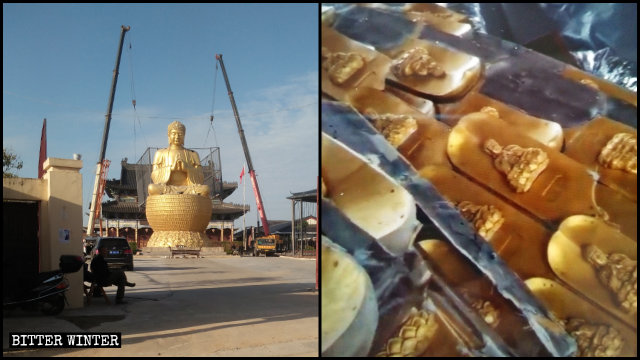
A monk at the temple told Bitter Winter that before the statue was dismantled, members of the central government inspection team to oversee religious work had paid two secret visits to the temple and urged local officials to tear down the statue as soon as possible. To save it, people in charge of the temple tried to negotiate with the district government but were told that they must follow the central government orders and must cooperate unconditionally; otherwise, the responsible officials will lose their posts.
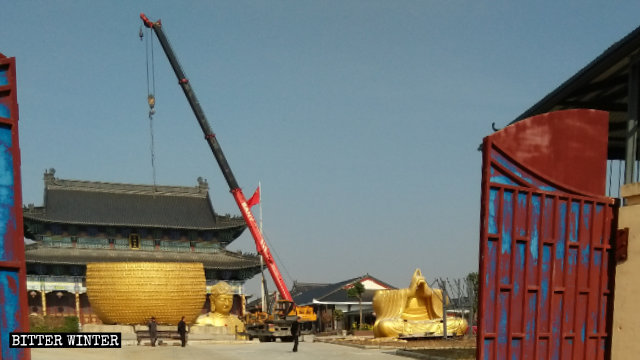
According to the monk, the Dafo Temple was built in 2010, after the local government approved the project. The 18-meter-tall Buddha statue cost over one million RMB (about $ 140,000) to build.
“State policies can change at any time. We can’t do anything against them,” said the monk. A worker in the temple explained that authorities tried to silence them after the statue was demolished, threatening to evict from the temple anyone who leaks information. “I wonder if the temple will be allowed to exist in the future,” he added.
“The Dafo Temple was well-known for this Buddha statue. How can it be called the Dafo Temple, literally meaning the Great Buddha, without a Buddha statue? The government’s campaign to destroy statues is worse than the ‘Four Clean-ups Movement,’” complained an elderly villager, referring to a political campaign launched by Mao Zedong in 1963 to “purify” politics, economy, organizations, and ideology.
On August 29, a gold-plated Earth Store Bodhisattva statue in the Wuping Temple in the county-level city of Daye was dismantled. It was built at the cost of 120,000 RMB (about $ 17,000).
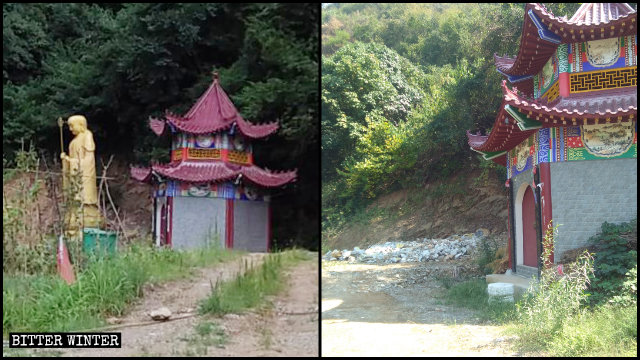
According to an eyewitness, as the statue was being removed, a Buddhist in her 70s burst into tears while burning incense and kowtowing on her knees. She pled government officials to save the statue, but they disregarded her. Five hours later, the Earth Store Bodhisattva was gone.
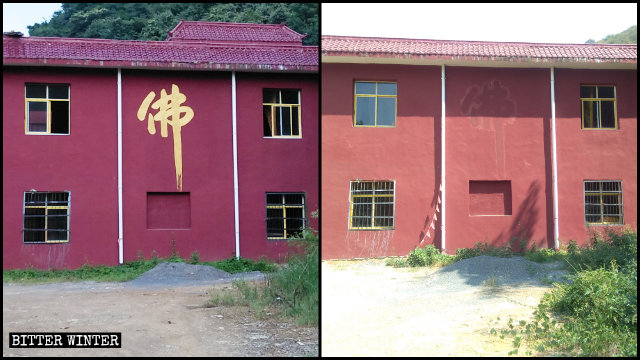
“This is a central government policy. Anyone who dares to challenge it could be arrested,” a villager said helplessly.
A few weeks later, all statues of Buddha in the Guirong Temple in Daye were cleared, and the temple was converted into a “cultural activity center.”
In the Dashi Pavilion, a Buddhist temple in the Xisaishan district of the prefecture-level city of Huangshi, the Guanyin Bodhisattva has been worshiped for almost 150 years. But in mid-August last year, its front door was bricked off on government orders.
A local Buddhist said that after the temple was sealed, devotees had no choice but to set up a table next to the door with incense burners and offerings. On the 1st and 15th day of each month, often on weekends or holidays, people would come before dawn to worship the Buddha outside the temple in lowered voices not to attract attention.
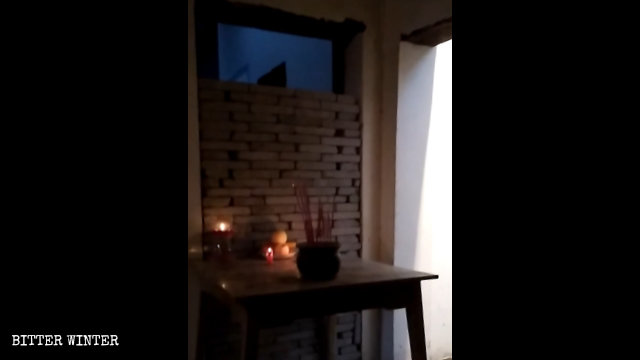
Longquan Temple, another Buddhist temple in the district, has a history of over 400 years. In late September, to protect the temple from demolition, its in-charge built a wall to conceal the statues of Buddha and removed the temple’s name from the outside wall.
The Dongshan Temple in Huangshi’s Yangxin county had its front door bricked up in August.
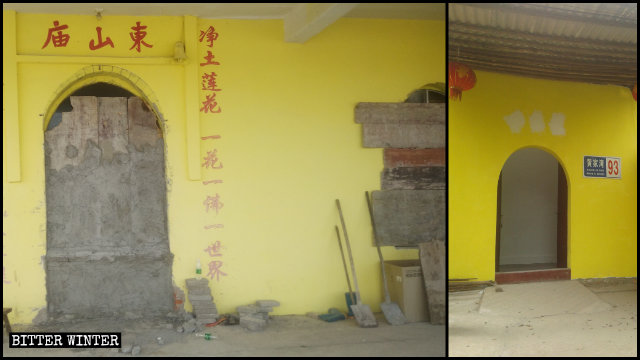
A Buddhist has spent over 20 years guarding a temple in Jiangling county administered by the prefecture-level city of Jingzhou. “The Bodhisattva statue was removed from the temple, and the door was bricked up. Believers can’t come in to worship,” the Buddhist told Bitter Winter. “I’ve lost my livelihood. Now I have to live on the rice donated by the neighborhood residents.”
Source: Bitter Winter












